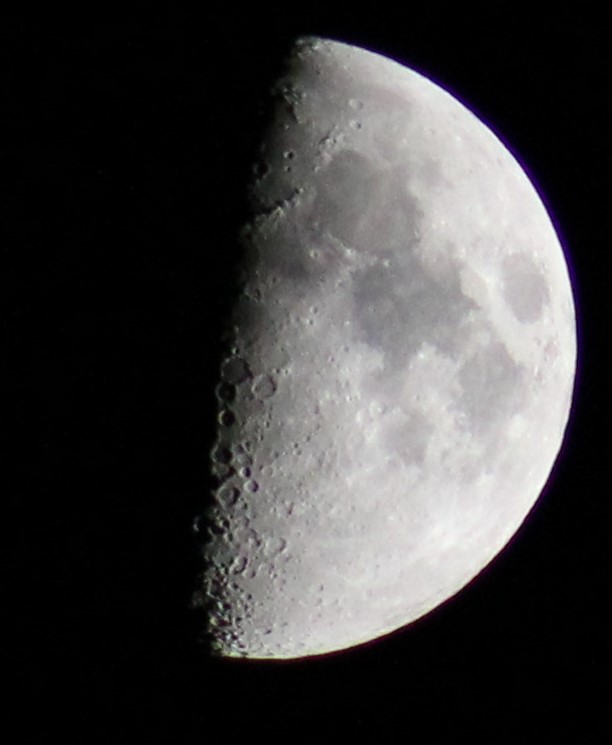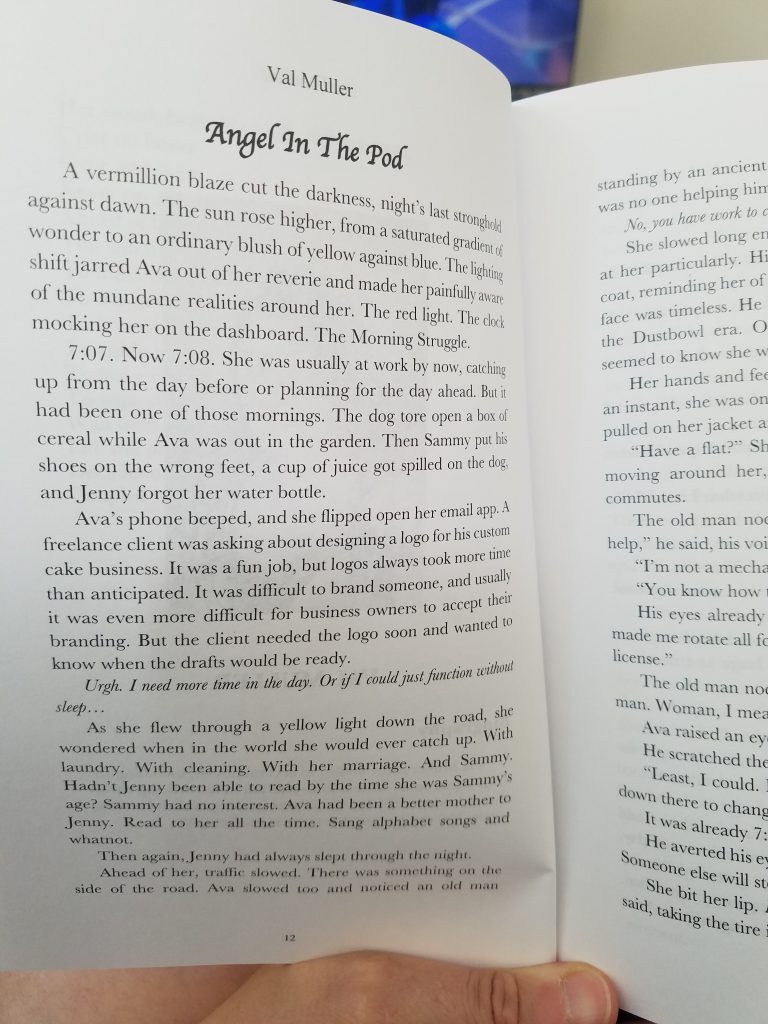At the beginning of July, when I heard that conditions would be ideal to view the recently-discovered Neowise comet, I smiled inside. I have a bad track record of viewing cosmic events, and this sounded like my chance.
When I was very small, my parents took me to see Hailey’s comet. I remember we drove somewhere cold—a school with a hill. It was dark. My dad painstakingly set up the telescope. I remember my dad telling me to look through, him telling me not to bump the telescope. I don’t really remember seeing anything in the telescope—I may have been too young—but I do remember the smell of the telescope and the taste of the hot chocolate we had from a thermos afterwards. While I can’t say 100% that I consciously saw Hailey’s comet, I can say that it somehow passed through my eyes, and the experience impressed itself upon me. There were other families there on that hill, at what seemed to a tiny kid to be the middle of the night. This comet was something important enough to disrupt ordinary life, and it brought people together.
Many times over the course of my life, I set alarms to try to see one cosmic event or another, but it’s been hard to find people willing to stay up that late/get up in the middle of the night/wake up that early to share the experience. And usually cloud cover foiled my plans, and I spent the next day tired and wondering why I got out of bed in the middle of the night at all. I remember years ago leaving the warmth of my then-townhome, shivering in the driveway while not being able to see whatever it was I was trying to find, and jealously calculating how many neighbors were blissfully sleeping through the cold night.
The only exception had been the somewhat recent solar eclipse, which I was able to see with a bunch of coworkers in the middle of the day. That solar eclipse was really the first “conscious” time I truly experienced a cosmic event without cloud cover and with the company of others. The fact that we were all there together, watching this thing that was larger than all of us, really created a sense of community. It’s a memory that’s burned into my soul, all of us taking a break from work to don our solar glasses and look at the strange patterns of the sun filtering through the trees in little crescents.
The possibility of seeing Neowise called to me, despite being stuck in a pandemic more or less in social isolation. For Neowise, I set my alarm for 4 a.m., which is when the comet was first visible. I couldn’t see it very well with my naked eye. I saw a streak in the sky, but the sunrise was already starting to wash it out. I pointed my camera at what I thought was the comet, and I was amazed at what appeared on the viewfinder. The adrenaline rush told me there would be no falling back to sleep that morning.
Soon, the comet would be visible in the evening, and I used the interim to watch some videos to learn about night photography with my DSLR. The absence of the moon paired with cloudless skies made conditions optimal, and I found ways of playing with exposure and other settings to make up for the lens on my DSLR, which is not meant for night shots.
As I posted and emailed the shots to friends and family, the response was amazing. I received texts late each evening with questions about where and how to find the comet, and I remembered the sense of unity I felt during the solar eclipse, even though the people contacting me were all socially isolating.
Those whose views were blocked by trees or houses thanked me for posting or sending pictures. People sent me articles with tips about how to best view the comet. Friends texted me late at night with pictures of their own comet quests—friends who would have absolutely no other reason to contact me at that hour. Virtual conversations ensued with friends I hadn’t seen in years over photography tips and camera equipment purchases.
I went out each night that the sky was visible to view that comet. The world felt different somehow. Something amazing was happening as I was isolated in my backyard, and I felt like part of something much larger and more significant. The perspective was much needed during a time of global uncertainty.

After nights of rain, I resumed pictures on July 25. Neowise’s glory had faded. Can you spot the comet toward the bottom of the picture?
My interest in the comet prompted my husband to take out his dad’s old telescope, which prompted my daughter to take an interest in the stars and moon. It was a needed distraction and a needed nod from the universe that not everything had come to a standstill. There are still amazing things out there, and Neowise was a reminder that positivity spreads. I’m always glad to be a part of helping it to do so.

By July 26, the comet was barely visible. But my photography skills had improved enough to capture it!










